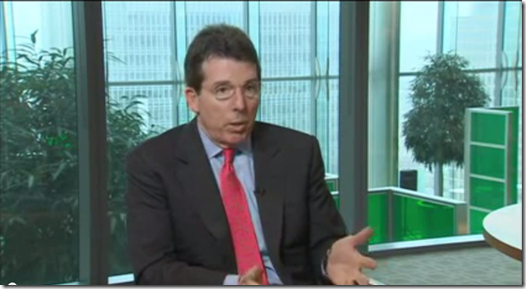Your Worst Media Nightmare Stories
Every P.R. professional who works with the media long enough has a media nightmare story to share.
Last week, I asked you to share your worst media nightmare stories – and you had some doozies to tell. Here are some of the highlights (lowlights?) you shared, along with a tip or two to help readers avoid a similar fate.

This one from Pamela Principe-Golgolab made me laugh:
“A simple typo turned a headline for a luxury condominium [that was supposed to read] ‘High Rise Condominiums Open This Sunday’ into ‘High Risk Condominiums Open This Sunday.’ I still think the editor was goofing on us – needless to say, a retraction was printed.”
John Landsberg was also haunted by a typo:
“I worked for months to get a reporter to visit my client’s business. I was confident he would be impressed and it would result in a nice feature story. Everything went perfectly as the reporter spent hours interviewing executives and touring the facility. We waited excitedly for the day the story was to appear. Unfortunately, the reporter somehow misspelled the company name in the headline and throughout the entire story. My client was furious and I was left to handle the situation.”
Tip to readers: You can help eliminate typos by sending reporters your name, title, company name, and preferred bio line to try to avoid a similar fate. I suspect John did that – it doesn’t work every time, but it often helps.
A. Cross’s nightmare centered on a false rumor:
“Social Media created a rumour saying my organization was going to do something awful. When we corrected the error to the media, it was spun that the public outcry stopped the situation. Often now the misinformation is brought up as a backgrounder when our organization is mentioned in the media, regardless if the story is a ‘do good’ story or not. Correcting the misinformation has been an ongoing battle.”
Tip to readers: In a similar situation, you might consider writing your own blog post on the subject and trying to get it to the top of search results pages using search engine optimization (SEO).
Reader Ellen Beth Levitt shared her press conference nightmare:
“Once, while working for a hospital, I arranged a news conference to announce the opening of a new orthopedic center. I didn’t know it but the doctors who were co-directors of the new center had invited their wives, children and other relatives to the news conference. They showed up just as we were getting underway and sat down toward the front. The wives were in fur coats, the children were crying – and those of us who organized the event were mortified! To make matters worse, one of the doctors had a young patient who had been operated on earlier that day wheeled in during the news conference – he threw up as he reached the front of the room.”
Tip to readers: You might consider issuing press conference guidelines to all attendees in advance that specify proper press conference protocol and offer guidance regarding where family members should sit – if they’re allowed to attend at all. The front rows should be reserved for press only.
Thank you for sharing your stories! If you haven’t already weighed in, feel free to leave your stories in the comment section below.
Is your executive team long overdue for a media training session? Please contact us to learn more about our customized media training workshops.
Related: Is It Unprofessional to Ask a Reporter For The Questions Before an Interview? (See answers in the comment section)
Related: What Tricks Do You Use to Manage Stage Fright? (see answers in the comment section)


Hi Brad,
After reading this post, and thinking about the many comments that you received yesterday on your post on Jay Carney, I would be interested to hear your take on how to handle becoming a viral hit specifically on the Internet.
Say your company blog gets linked to from Huffington Post, and a huge traffic increase occurs. Normally, that’s a good thing. But say that the comments get out-of-control with trolls, spam, and rude comments. How do you handle that? You appreciate the traffic, but not the madness of the Internet. I think you did a great job yesterday handling the strong political views that was expressed. Maybe a case study on how you handled it?
Also, somewhat related, say you did something and you become a viral hit on the Internet. Whether you performed positively and the Today’s show wants you to come on in the morning, or you did something embarrassing and Gawker posted your name on their website with a link to your company, what should you do?
It seems like everyday there is some story floating around the blogs and social media about people getting caught up in something, and the attention for the bloggers and commenters just crushes them. For example, I remember a random story on Gawker about a month ago about a girl who fooled around with a famous director. Her email about the encounter got leaked to Gawker, and eventually her name and picture was published. Commenters eventually found out her employer (which ironically was a public relations company), linked to the website, and probably crushed their servers that day. The girl was reported to have been fired for bringing unwanted attention to the company. Then, a couple of days later, no one cares. The mob of the Internet moves on, yet this story will always be near the top of search results for this company and this girl.
Sorry for the length of this comment. Just reading about the company in the post that had a false rumor spread on social media, and the various comments from your post yesterday sort of put the questions in my head. Are the tips for handling “traditional” media inquires the same for handling blogs, commenters, and social media?
Keep up the great work!
First–I’m a reporter. I was doing a story about how a local mexican food place was giving a free evening with food to the families of a local business that had been on strike nearly a year, at Christmas-time. So it was a great gesture as many of these people were losing their homes etc.
She listed some of the dishes, and I asked her what made up one of them and she said corn and pork and some veggies.
Well, later, when I wrote it, I wrote ‘corn and porn.’ And my editor never caught it before it went online, nor before it went to print.
Le sigh. Corn and porn.